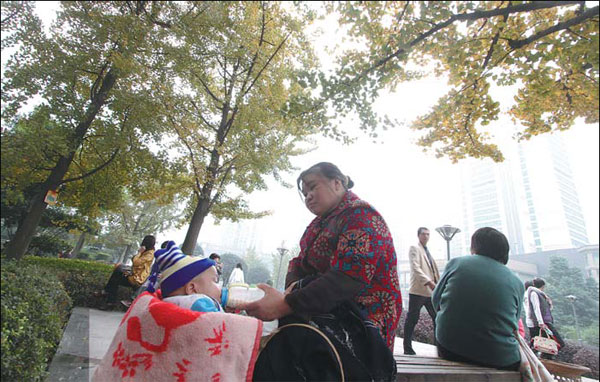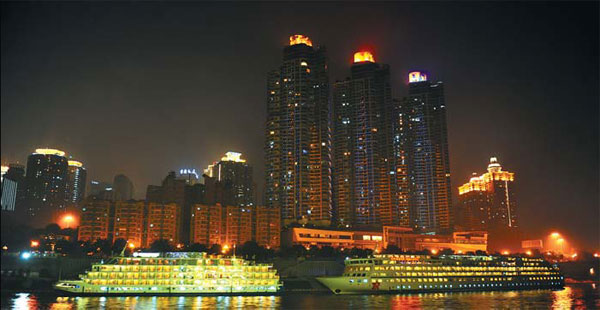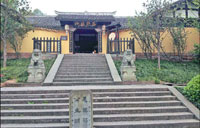History Echoes in metropolis
 |
|
Gingko trees on Guanyinqiao's pedestrian street provide visitors a sense of comfort and tranquility. He Zhongrong / For China Daily |
 |
|
People can enjoy a sparkling night view of Chaotianmen area. Zhang Guorong / For China Daily |
If you insist on a sampling of urban Chongqing not too skewed toward one social segment, Guanyinqiao, or literally Bodhisattva Bridge, north of the Jialing River, is an ideal place.
Here, far from the tourist crowd, you'll encounter swarms of local shoppers and strollers. The mix of pedestrian-only traffic, retail establishments and park facilities provides so much comfort and convenience you can find virtually anything and in a wide price range. For example, I find many local snacks I have never tasted, but the endless array of options can be mind-boggling.
Nowhere may prove the gregarious nature of Chongqingers better than this place. Under dense foliage, the retired play chess or cards while lovers ramble past a wall inscribed with "I Love You" written in scores of languages.
Aimlessly, I watch them for hours, and even accidentally walk into a hotel and realize I stayed here almost a decade before, when the skyline was very different.
|
|
Guanyinqiao is unique in that it functions as an island encircled by several streets of non-stop traffic.
As a tourist, I don't know what I am getting into once I cross one of those demarcation streets. But within the oasis of foot traffic, I can take in as much of the local flavor as I want.
And it dawns on me why Chongqingers have a soft spot for hot pot even in the heat of summer. It seems people who live in the most populous city cannot get enough of crowds. Here, too much of a good thing is still a good thing.















